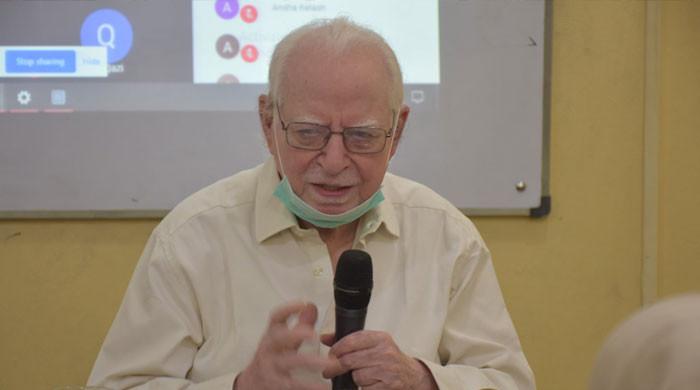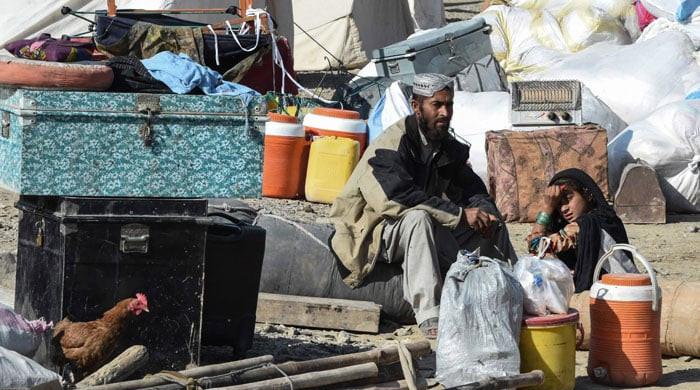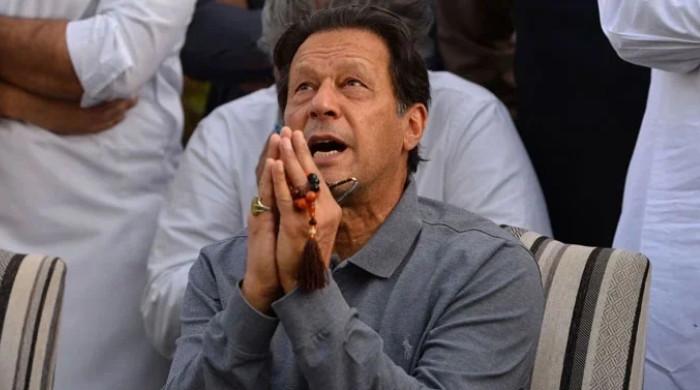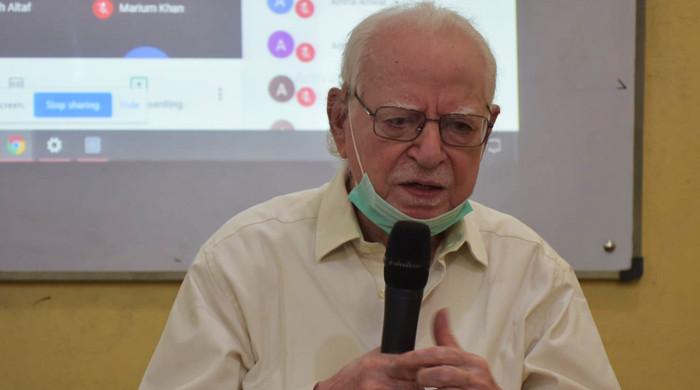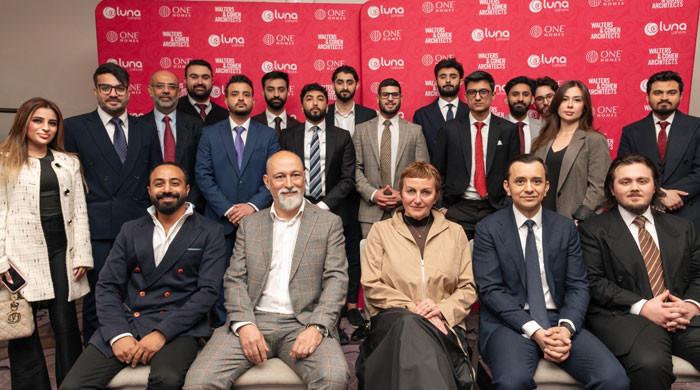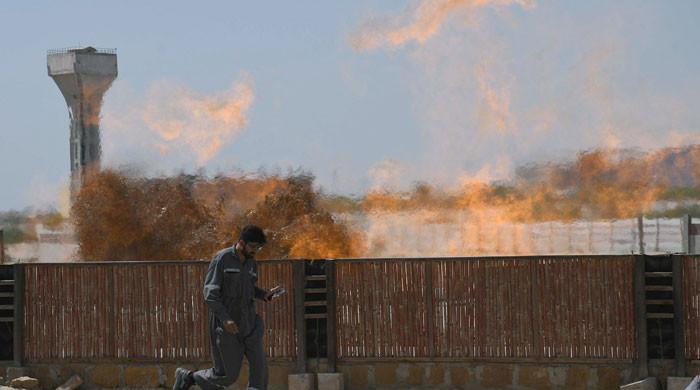Pakistan reports first case of Indian coronavirus variant
Dr Pechuho says the South African variant of coronavirus is also spreading rapidly in Karachi
May 28, 2021
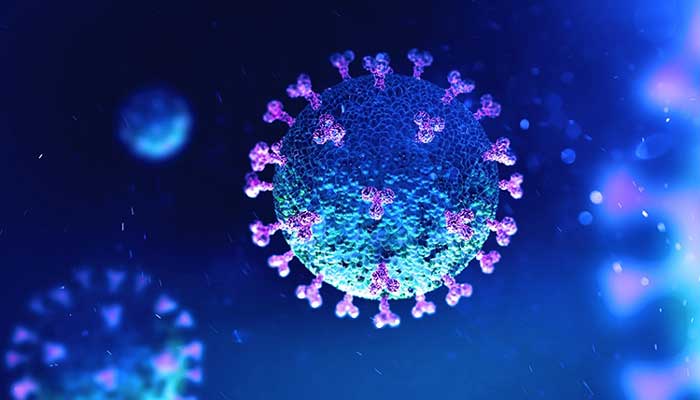
- Federal health ministry says one case of the Indian COVID-19 variant has been detected in Pakistan.
- Sindh health minister says South African variant of coronavirus is rapidly spreading in Karachi.
- Says most of the cases had been detected in children under the age of 2 years; urges parents of young children to get themselves inoculated as soon as possible so as not to contract the virus from children.
The first case of the so-called Indian coronavirus variant has been detected in Pakistan, the federal health ministry confirmed Friday.
So far, seven cases of the South African variant have been detected in the province, the National Institute of Health said.
Speaking to Geo News, Sindh Health Minister Dr Azra Pechuho said that the South African variant of coronavirus is also rapidly spreading in Karachi.
Serological research was carried out on 57 samples which revealed that out of the total, the South African and British variants comprised 71% and 20% cases in Karachi, respectively, the health minister said.
She said that most of the cases had been reported in children below the age of 2 years, adding that parents should get themselves inoculated as soon as possible so that they do not contract the virus from their children.
It may be recalled that the wife of one of the 12 Indian diplomats, who had recently visited Pakistan, had tested positive for coronavirus. All 12 Indian officials, along with their families, have been directed by the government to complete the quarantine period.
Back in April, Dr Pechuho warned residents that they must take extra precaution in the wake of first the UK and the South African and Brazilian coronavirus variants being detected in the province.
In a video message released by the Health and Population Welfare Department of Sindh, Dr Pechuho had said that in a genomic study carried out by Aga Khan University Hospital of 13 samples, 10 were found to have the UK variant, one had the South African variant and one had the Brazilian variant.
Dr Pechuho had said that what adds to the concern is that the South African and Brazilian variants "are not vaccine responsive" and so someone who catches COVID-19 via one of these strains is likely to fall "very ill" despite being inoculated.
She had advised the masses to avoid crowds, including small social gatherings inside homes, as well as travelling unnecessarily.
What we know about the Indian variant of coronavirus
The B.1.617 variant contains two key mutations to the outer "spike" portion of the virus that attaches to human cells, according to senior Indian virologist Shahid Jameel.
The World Health Organisation (WHO) said the predominant lineage of B.1.617 was first identified in India last December, although an earlier version was spotted in October 2020.
The UN agency and Britain have classified it as a "variant of concern", along with variants first detected in Britain, Brazil and South Africa. Some initial studies showed the Indian variant spreads more easily.
"There is increased transmissibility demonstrated by some preliminary studies," Maria Van Kerkhove, WHO's technical lead on COVID-19, had said on May 10, adding that more information is needed about the Indian variant to understand how much of it is circulating.
British health officials said on May 7 there was evidence it spreads more quickly than the original version of the virus and could spread as quickly as the so-called "Kent" variant which fuelled England's second wave of infections.
Are variants driving the surge in cases?
It's hard to say. Laboratory-based studies of limited sample size suggest potential increased transmissibility, according to the WHO.
The picture is complicated because the highly transmissible B.117 variant first detected in the UK is behind spikes in some parts of India. In New Delhi, UK variant cases almost doubled during the second half of March, according to Sujeet Kumar Singh, director of the National Centre for Disease Control. The Indian variant, though, is widely present in Maharashtra, the country's hardest-hit state, Singh said.
Prominent US disease modeller Chris Murray, from the University of Washington, said the sheer magnitude of infections in India in a short period of time suggests an "escape variant" may be overpowering any prior immunity from natural infections in those populations.
"That makes it most likely that it’s B.1.617," he said. But Murray cautioned that gene sequencing data on the coronavirus in India is sparse and that many cases are also being driven by the UK and South African variants.
Carlo Federico Perno, Head of Microbiology and Immunology Diagnostics at Rome's Bambino Gesù Hospital, said the Indian variant couldn't alone be the reason for India's huge surge, pointing instead to large social gatherings.
Prime Minister Narendra Modi has been criticised for allowing massive political rallies and religious festivals which have been super-spreader events in recent weeks.
Do vaccines stop it?
One bright spot is that vaccines may be protective. White House chief medical adviser Anthony Fauci said that preliminary evidence from lab studies suggest Covaxin, a vaccine developed in India, appears capable of neutralizing the variant.
A double dose of COVID-19 vaccines developed by Pfizer-BioNTech and AstraZeneca is almost as effective against the variant as it is against Britain's dominant strain, English health officials said on May 22.
Two doses of Pfizer's shot was 88% effective against symptomatic disease from the variant and AstraZeneca's was 60% effective, the research showed.
Public Health England is working with international partners but that there is currently no evidence that the Indian variant and two related variants cause more severe disease or render the vaccines currently deployed less effective.
The WHO has said early studies suggest some loss of vaccines' neutralisation capacity against the variant, but it is not clear if this translates into decreased vaccine efficacy.
"We don't have anything to suggest that our diagnostics, our therapeutics and our vaccines don't work. This is important," said Van Kerkhove at WHO.
With input from Reuters.




